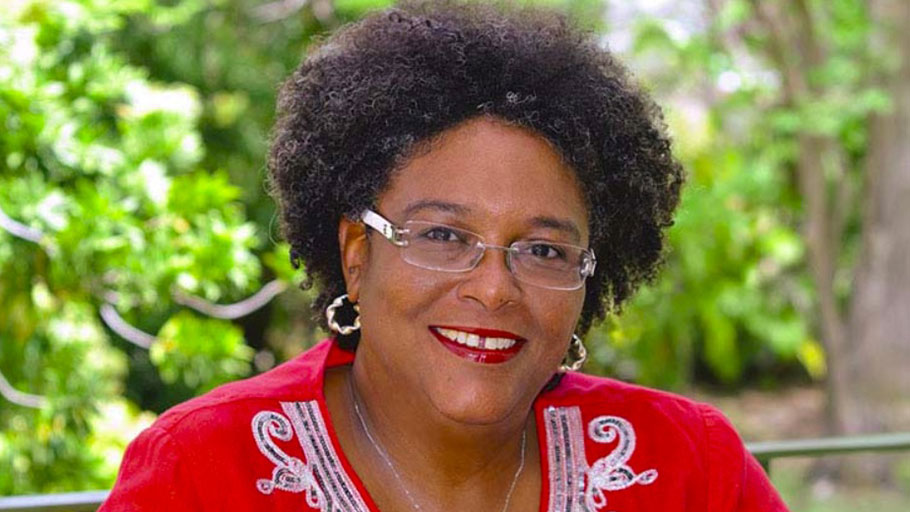Mottley, 52, becomes Barbados’ eight Prime Minister and the fifth female head of government in the English speaking the Caribbean.
The BLP attacked the current government on its policy of high taxation and focused on the cost of living during the campaign.
By teleSUR —
The Barbados Labour Party (BLP) has won the country’s 2018 General Elections claiming all 30 seats in the country’s House of Assembly and unseating the Democratic Labour Party (DLP), which has governed the country since 2008.
The crushing victory for the BLP means that its political leader Mia Amor Mottley will be sworn in as Barbados’ first female Prime Minister since the country gained independence from Britain in 1966.
Mottley, 52, becomes Barbados’ eighth Prime Minister and the fifth female head of government in the English speaking Caribbean joining the likes of the late Dame Eugenia Charles of Dominica, Janet Jagan of Guyana, Portia Simpson Miller in Jamaica and Kamla Persad Bissessar in Trinidad and Tobago.
The result brings the Caribbean island’s controversial election day and campaign to a decisive end with the BLP securing the broadest electoral victory in the country’s history and with a mandate, which allows them to make changes to the constitution and implement other reforms promised during the campaign.
On election day there were a series of complaints with multiple citizens stating that they were unable to find their names on the voters’ list with some having to go to the courts to have their names added to the list of Register of Electors at the last minute. Citizens were also forced to wait into the wee hours of Friday morning for the result after a delay in the counting of ballots.
Ahead of the vote Barbadian pollster, Peter Wickham, predicted a five percent swing away from the incumbent Democratic Labour Party (DLP), well over the two percent needed for a change of Government.
“The historic reality is that we have small swing elections and big swing elections. 2013 was clearly a small swing election; this one is likely to be a big swing election, largely because the two follow in sequence. So even if I were to set aside any poll data and say, ‘let’s look at it purely in terms of history’, we are looking at a swing in excess of five percent, bearing in mind that the swing needed to change the Government is less than two percent,” Wickham told online newspaper Barbados Today.
The final result, however, produced a 10-15 percent swing in favor of the BLP, which saw the DLP losing all 16 constituencies it held in the Assembly.
Mottley assumes office at the difficult time for the Caribbean country. The Barbadian economy has struggled since 2009 in the wake of the global financial crisis. Weak growth and sizeable state budgetary deficits have also increased its debt to GDP ratio over the last few years and led to several international credit rating agencies repeatedly downgrading its economic outlook.
The BLP attacked the Freundel Stuart led government on its policy of high taxation and focused on policies to reduce the cost of living during the campaign, promising to bolster public services such as garbage collection, public transportation, and infrastructure improvement.
The government has also come under attack for failing to contain effluent bubbling up from sewers along south coast roads that lead to many of the island’s prized beaches and famed tourist resorts.
Though Stuart announced the election less than a month ago, the BLP has been in campaign mode since the start of 2018.
Frustration over the longstanding DLP-BLP duopoly has caused a host of new political parties to spring up in the island of some 285,000 people with a record number of 135 nominees registering to contest the election.















